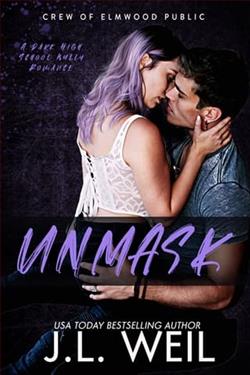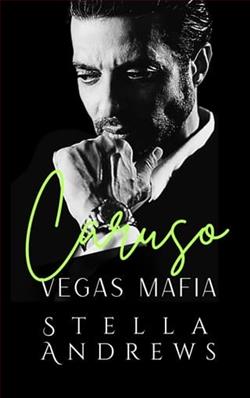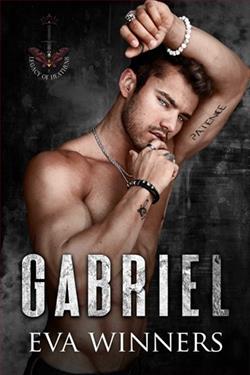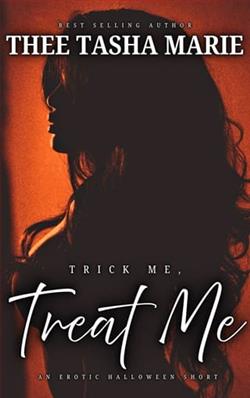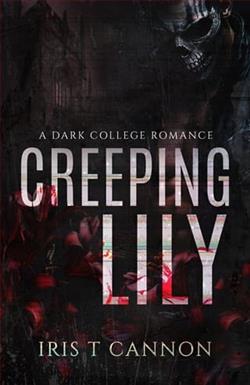Page 73 of Like a Love Story
“I also lied to you about your book bag,” he says, cringing a little. “When you left it at my house. I opened it. I read those notecards. I smelled your underwear.”
“You did NOT,” I say, giddy.
“I did. I’m awful.” The blush on his cheeks is accentuated by the darkroom lights.
“You’re all kinds of awful,” I say, impishly. “Now can we please be awful together?”
He turns his attention back to that image of himself as if there’s an answer to a riddle buried inside it. Then he turns to me and says, “You are so talented.”
“You think so?”
“I know so,” he says.
“I see things,” I say. “I mean, I know that sounds crazy. But it’s like, I don’t snap a photo unless I see its energy. I know they’re all black-and-white, but they have colors to me. Auras. And if they don’t, I don’t take them. And if the aura doesn’t survive when I print the picture, then I throw it out. And I want... I want them to mean something. I want to contribute something. To capture all this, so that a hundred years from now, or a thousand years from now, people will remember it all and know that we existed. That we lived.”
“How did you start?” he asks.
“I always liked taking pictures,” I say. “My mom had a camera, and she said when I was a kid and she was always taking photos of me, I would take the camera from her and take photos of her. She has an album somewhere at home of Polaroids I took when I was, like, five years old.” My heart aches a little bit thinking about those Polaroids of my mother with her Farrah Fawcett hair and her chic palazzo pants and fringe dresses, of my father with a fuller head of hair and a thick mustache. My parents, through the lens of five-year-old me, were always shot from below, making them imposing and fabulous. When did that all change? When did I realize the divide between them and me was too big to cross? When did they go from being my favorite subjects to the villains in my story?
“Then Stephen gave me my camera the year I started high school, as a birthday gift, and it all took off fromthere. I became obsessed.” I remember those early days with my camera, learning everything about lenses and apertures and focus. Practicing on Judy and Stephen. Making them pose for me. Their exasperation when they had to sit too long as I figured out how to get the focus just right, not too sharp, not too hazy. God, I miss Judy. “I guess that’s it. Sometimes, I worry that I prefer life through a lens tolife, you know. In a lens, I can... structure things. Frame them the way I want them to be framed. It’s safe.”
His eyes pierce through me. “I don’t think there’s anything safe about it,” he says. “Your pictures are not safe. Everything about you, Art, is so...”
“Risky?”
“Bold,” he says. “Brazen.”
I think of my mom saying my photographs were “nice.” She doesn’t get me. But Reza does. He sees me.
“Brazen,” I repeat. “I want to be brazen with you.”
He laughs, then looks down at the floor, like he wants to escape this moment.
“Hey, you want me to teach you how to print a photo?” I ask.
He nods, and the lesson begins. As we print a portrait of a female activist in a cowboy hat, staring the camera down like John Wayne, I lead Reza’s hands toward the tongs and show him how to gently place the paper in the different baths.
“Careful not to touch the chemicals,” I say.
“Okay,” he says.
“Safety is crucial in a darkroom. You should always wear closed shoes.”
“Okay,” he says.
“If you do touch anything, always wash your hands right away. And be very careful not to get any in your mouth or eyes,” I say.
“What happens if you do?” he asks.
Our photo is in the final bath. I leave it in there and turn him around to face me. “Nothing will happen,” I say. “I’ll keep you safe. I promise.”
I lick his lips. He always smiles when I do this, and I’ll keep doing it until it stops making him smile. I pull him into me, crushing his body into mine. I kiss him, run my hands up his shirt, feel his smooth skin.
“Reza.” I look into his eyes. I soak in the sound of his name. “Reza,” I say again.
“Art,” he says, tenderly.
“Say it again,” I request.










